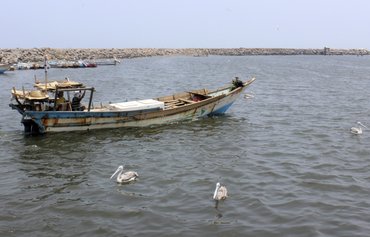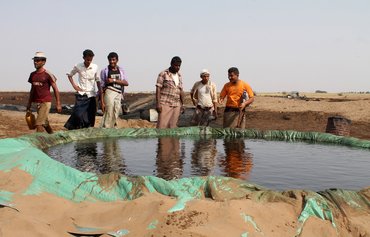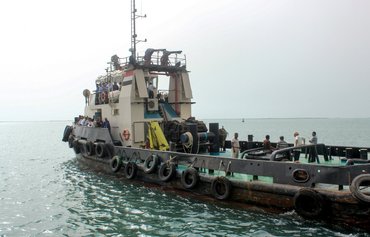At Yemen's request, the UN Security Council will hold an extraordinary session on July 15th to discuss an abandoned oil tanker moored in the Red Sea and the measures needed to avoid a potential environmental disaster.
The Safer floating storage and offloading (FSO) terminal, a corroding vessel moored off Ras Isa port in Houthi-controlled al-Hodeidah province, contains at least 1.14 million barrels of crude oil.
If the cargo it carries cannot be moved off the vessel before it sinks, a potential environmental disaster could ensue.
Yemen's permanent representative to the UN Abdullah al-Saadi on July 8th said the Security Council had responded positively to the Foreign Ministry's request to separate the Safer FSO issue from other political issues.
In a video-conference meeting with EU ambassadors to Yemen on July 9th, ahead of the Security Council session, Prime Minister Moeen Abdulmalik called for "intensifying UN and international pressures on the Houthis (Ansarallah)".
Foreign Minister Mohammed al-Hadhrami wrote to the Security Council on July 3rd, urging it to prevail on the Houthis to allow UN experts unfettered access to the terminal in order to avoid a major environmental disaster.
The issue of what to do with the terminal has become a political bargaining chip, with the Houthis refusing access to the Safer unless their terms are met.
Avoiding environmental disaster
In a closed briefing on Yemen on June 24th, and in a June 29th statement, the Security Council stressed the need for the Houthis to allow unfettered access to UN technical experts to assess the terminal's condition.
The team would conduct emergency repairs and also present recommendations for safely offloading the vessel's cargo.
"The next Security Council session on Safer must come out with binding resolutions to pressure all parties to co-operate in offloading the terminal," Studies and Economic Media Centre chairman Mustafa Nasr told Al-Mashareq.
Failure to resolve the situation "threatens a major environmental and economic disaster, not just in Yemen, but in the region and the entire world", he said.
The central issue, he stressed, "is to come out with a practical measure to avoid an environmental disaster in the Red Sea".
The Houthis have taken the position that dealing with the terminal must be part of the overall plans for finding a comprehensive solution in Yemen.
But the danger posed by the Safer prompted the Foreign Ministry to request that it be separated out from the UN special envoy's proposals, political analyst Faisal Ahmed told Al-Mashareq.
The government believes the Safer FSO is an environmental and economic concern that can and should be dealt with separately, but the Houthis insist any decision about the tanker is inherently political.
"The Houthis, and Iran behind them, have made the terminal part of the political solution, and linked it to the full cessation of hostilities, in order to keep their gains in case a full ceasefire is reached," Ahmed said.
In this way, he said, "the Houthis have turned the Safer into a ticking bomb and a weapon in Iran's hands, because an oil spill from the terminal will mean harm to regional countries and international trade".

![A picture taken May 11th, 2019, in the Red Sea port of al-Hodeidah shows UN vehicles arriving at the entrance of the Saleef port. [AFP]](/cnmi_am/images/2020/07/10/24935-Yemen-UN-Hodeidah-600_384.jpg)






